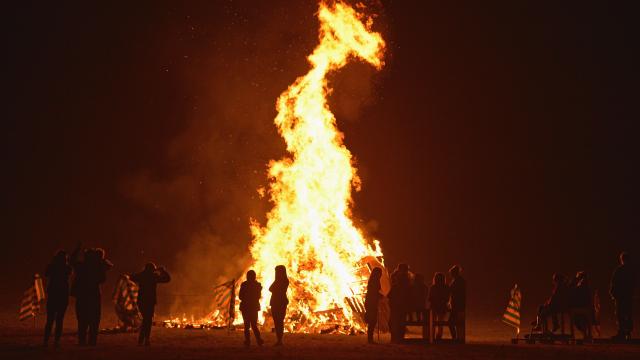As the weather cool down, seaside communities will be looking to enjoy their beaches at night without freezing their butts off. But before you head to the beach for your first bonfire of the season, here’s one important recommendation if you want to avoid inhaling toxic chemicals: Don’t burn any driftwood you might find on the beach.
This week, Dr. Anne Marie Helmenstine at ThoughtCo explained why burning driftwood is so dangerous.
Generally, when you burn any wood, a toxin known as dioxin is created in the process. Dioxin is carcinogenic and bioaccumulates over time, meaning it will build up in our tissues as you inhale or ingest it. (According to the World Health Organisation’s website, dioxin’s half-life is somewhere between seven and 11 years.)
Driftwood, however, is worse than your average bag of firewood because it comes into contact with salt from the ocean. The salt causes more more dioxins to be released. It also has the potential to corrode any venting system or stove if you’re planning to cook with it.
Here’s the thing — burning any wood comes with the hazard of toxin inhalation; it’s just that burning driftwood comes with a higher risk of that happening. Other practices, like burning trash or dismantling electronic products, will also expose you to dioxins. They’re also found in the fatty tissues of animals, so avoiding dioxins altogether might prove an impossible task.
That said, both short- and long-term exposure to dioxins is bad for your health; pregnant women, children, the elderly, and anyone with asthma or bronchitis are especially vulnerable to the effects of indoor air pollution.
What should you do instead of relying on driftwood at your next bonfire? As Scientific American recommends, wood pellets burn faster and create fewer pollutants; you can find these at most hardware stores.
The EPA has its own “best safety practices” when it comes to burning wood, too; you should avoid burning wet or treated wood, which can release more smoke and pollutants. Also, avoid burning any household trash with your wood; this can also release toxic chemicals.

Comments